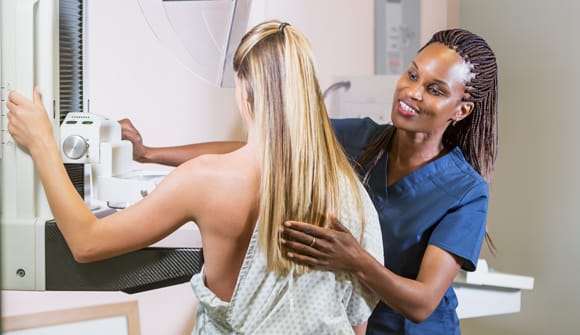Pap and vax
Tips for stellar cervical health.
Article Author: Beverly Wong-Ken
Article Date:

Most women are familiar with the pap smear, where a doctor collects cells from the cervix to test for potential problems and sends you on your way. While these regular tests are essential, they're not the only way to promote cervical health.
Lauren Hand, MD, gynecologic oncologist at Baptist MD Anderson Cancer Center, shared a few simple steps you can take to greatly reduce your risk of developing cervical health problems.
Cervix screens
"Women should begin receiving pap smears around the age of 21. For low-risk individuals, the test should be performed every three to five years," said Dr. Hand. "Many people think every time a pelvic exam is performed a pap smear is, too, but in reality, this may just be an exam to look at the cervix. A pap smear is when several brushes are used to obtain cervical cells which are then sent for pathologic review."
She added, "It is very important to see your OB/GYN every year for an annual exam as well as a possible pap if you are due. Even after having children or a hysterectomy, an annual appointment is important for preventive care."
HPV vaccine
Human papillomavirus (HPV) is one of the most commonly spread sexually transmitted infections (STIs) in the United States. There are many different types, and some are known to cause cervical and other cancers. Thankfully, vaccines protect against common strains of HPV known to cause serious problems.
"These shots can prevent most cases of cervical cancer if given to girls and young women before they are exposed to the virus," said Dr. Hand. "Though vaccination can be performed up to age 45, it is generally recommended through age 26, ideally given around 11 or 12."
According to the Centers for Disease Control and Prevention (CDC), the HPV vaccine can be given to boys and girls as young as 9.
Dr. Hand urged, "Please get your kids vaccinated, as cervical cancer is preventable."
Play it safe
Because HPV is spread through sexual contact, practicing safe sex is critical. Although condoms aren't 100% effective at preventing infection, they do provide some protection.
"Most women who are sexually active will be exposed to HPV. That's why it's important to get the vaccine in your early teens, before exposure," said Dr. Hand. "The best ways to maintain a healthy cervix are to get the HPV vaccine and avoid multiple and high-risk sexual partners."
Educate yourself
"Though there are high-risk types of HPV associated with cervical cancer, only a small percentage of women exposed to these strains will develop it," said Dr. Hand. "Our bodies will usually fight off HPV. Persistent infection with high-risk types can cause more severe or 'high-grade' changes in cervical cells. These are more likely to become cancer, if not treated."
"There are also other rare types of cervical cancer unrelated to HPV, so even if you have a negative pap smear, it is important to see your OB/GYN every year," she added.
Your primary care physician can administer the HPV vaccine and can either perform or help set up preventive care, like Pap tests. To request an appointment with a Baptist Primary Care physician, click here.



